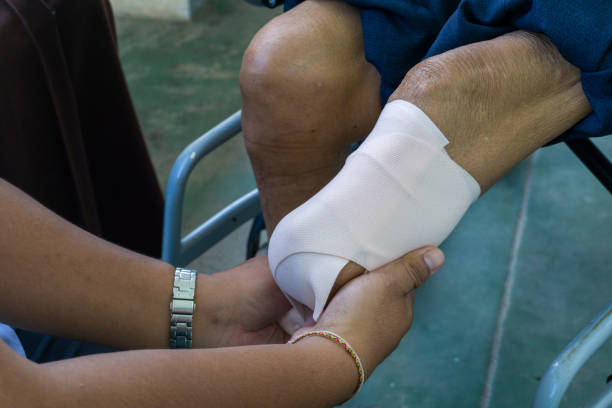
More than 25% of patients who get a lower extremity amputation need another amputation on the same limb within one year. At GAAWC, Dr. Stubbs and his team can perform amputations and provide advanced care for amputations that don’t heal properly. To learn how personalized wound care can help you prevent another amputation, call the office or book an appointment online today.
Amputations Q&A
What is an amputation?
Amputation is the surgical removal of part of your body. Tissue needs blood flow to remain alive. Lack of good blood flow may compromise tissue that can get infected and die. This tissue needs to be removed to prevent the infection from spreading to healthy tissue in addition to removing the already dead or nonfunctional tissue.
After surgery, the wound may heal slowly due to the same underlying factors that resulted in amputation. Dr. Stubbs and the team at GAAWC provide progressive, integrative treatment for non-healing amputations.
Smoking increases your risk for amputation by impairing circulation and reducing the amount of oxygen in your blood.
Why would I need an amputation?
Amputation is never the first line of treatment, but this procedure may be the only option to prevent a life-threatening infection. About 2 million people in the United States have lost a limb from amputation, and about 82% were due to vascular disease.
Amputations occur for a variety of reasons such as:
Smoking increases your risk for amputation by impairing circulation and reducing the amount of oxygen in your blood.
What happens if an amputation wound does not heal?
There are many reasons why an amputation does not heal. You may have compromised blood flow, poor nutrition, or there may still be an infection at the wound site. The GAAWC team uses modern techniques to assess these factors and treat the reason for your amputation site isn’t healing. In particular, they can assess your blood flow and local tissue oxygenation. Using this information, they can make recommendations tailored to your unique physiology.
What tests and procedures diagnose non-healing amputations?
First, Dr. Stubbs or a member of his team carefully evaluates your wound. They review your medical history and perform a physical exam. The Wound Care Experts team offers comprehensive wound analysis using advanced tests and procedures in-office.
What treatments are available for non-healing amputations?
After they diagnose the underlying problem, your provider recommends the best approach to treatment. They offer a variety of integrative treatments for non-healing amputations, including:
If you have an amputation that won’t heal, call GAAWC or book an appointment online today.
© 2025, Greater Atlanta Advance Wound Care. All Rights Reserved.